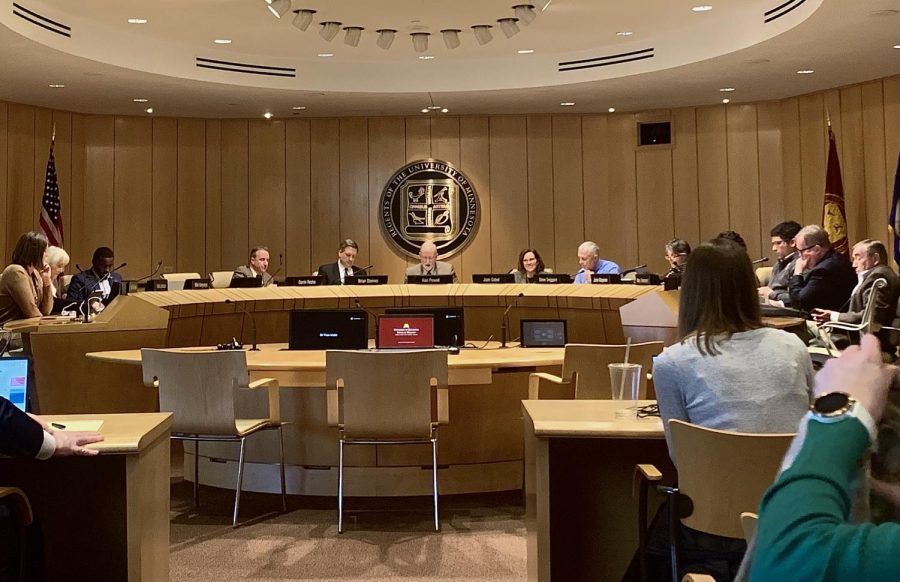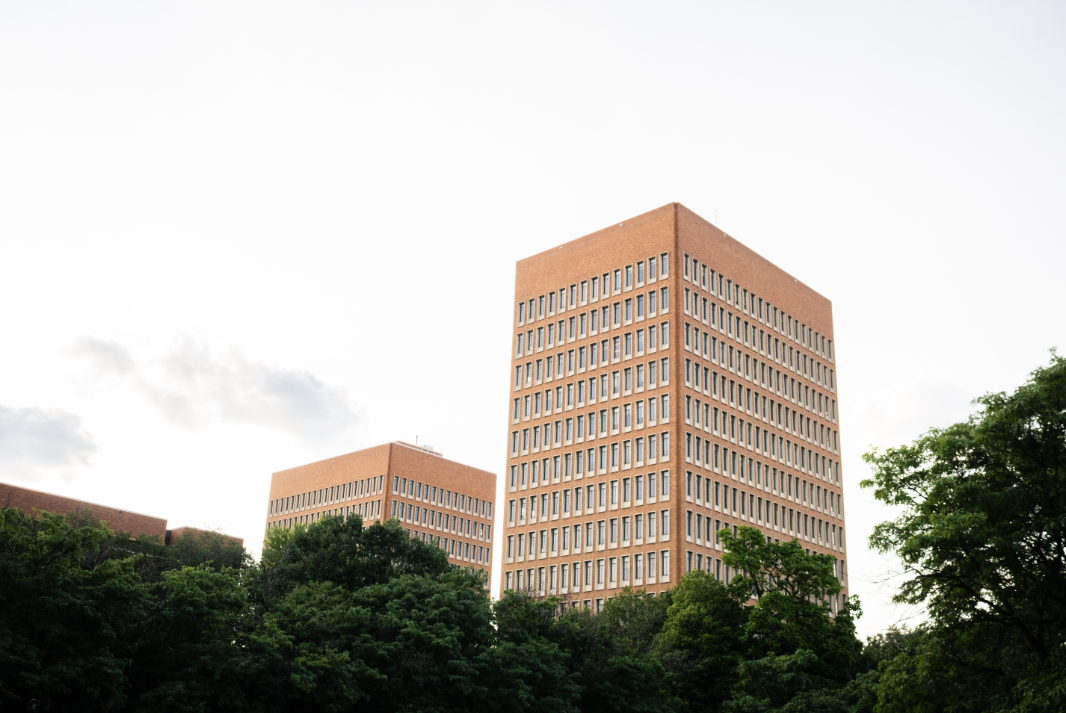The University of Minnesota Board of Regents approved amendments to the University’s 2024-25 supplemental budget request during their meeting held on the Morris campus Friday.
The board also greenlit purchases of land in southern Minnesota for the University’s Future of Advanced Agricultural Research in Minnesota (FAARM) program and heard from student representatives and their recommendations for how University administration can better support students.
Regents approve amended supplemental budget request
The board voted 11-1 to approve the University’s proposed additions for the 2024-25 supplemental budget request. The University initially requested $205 million.
University Senior Vice President for Finance and Operations Myron Frans and University Budget Director Julie Tonneson presented amendments to the board, which were brought to the Minnesota Legislature last week.
The amendments include an additional $97.5 million for the creation of the American Indian Scholars Program, funding to supplement the enrollment-driven tuition shortfall and aid to freeze undergraduate tuition.
The American Indian Scholars Program would provide full tuition and fee scholarships for American Indian students at any University campus. Gov. Tim Walz and Lt. Gov. Peggy Flanagan recommended the $9 million program to the Office of Higher Education’s budget and the University.
According to an anticipated decline in University systemwide enrollment rates in 2024 and 2025, the estimated shortfall will cost $48 million. Without state aid, the University could see between a 6.5% and a 7.5% increase in tuition rates at the Twin Cities campus and a nearly 3% increase at the other system campuses, according to Tonneson.
“Never in my 30 years here have we run into a situation like this where almost all units are falling short,” Tonneson said.
University President Joan Gabel cited COVID-19 for the decline in University enrollment rates.
“That particular tuition shortfall is COVID related,” Gabel said. “COVID has created an unusual impact on retention; it’s a one time issue.”
The University is also requesting $40.5 million to freeze tuition across all five campuses for Minnesota resident undergraduate students in both 2024 and 2025.
UMN to purchase land for FAARM program
The regents unanimously voted to approve the University’s purchase of roughly 748 acres distributed among five plots of land in Mower County for the FAARM program.
The estimated cost for the land purchases is more than $10 million.
The program will ultimately require a total of about 1,600 acres of land. The board previously approved the purchase of 80 acres.
As a part of the University’s College of Food Agricultural and Natural Resource Sciences, the FAARM program will use the land to develop an agricultural and food systems research complex located in southern Minnesota.
“FAARM is very important to the state,” Regent Doug Huebsch said. “It’s going to be vital to the future in terms of doing things right on farms and taking us to the next level.”
Student representative make recommendations focused on DEI efforts
Student representatives to the board, Riley Tuft and Sarah Davis presented student recommendations to the board. These recommendations focused on five areas of improvement, including mental health, diversity, equity and inclusion (DEI) efforts, affordability, academic success and sustainability.
These recommendations were based on an analysis of student representative recommendations from 2015-2022.
Tuft and Davis encouraged the board to conduct a formal review of mental health at the University and become more involved in mental health initiatives.
During their recommendations for DEI efforts, Tuft and Davis highlighted that over the past seven years, the University has only implemented 11 out of the 32 recommendations past student representatives have made in this area. They said there are known efforts to implement five additional recommendations, leaving 16 with “no clear efforts.”
For this year, Tuft and Davis presented five additional DEI recommendations, including a mandated Gopher Equity Project training module for staff, faculty, administrators and students, increasing student accommodations resources and increasing efforts to retain faculty and staff of color. They also recommended increasing community involvement in University issues and creating an American Indian center on the Morris campus.
“Given the fact that only half of the recommendations in this area have been addressed, there is more work that the Board of Regents and University can do to create a safe and inclusive learning environment for underrepresented members of the University community,” Davis said.



























